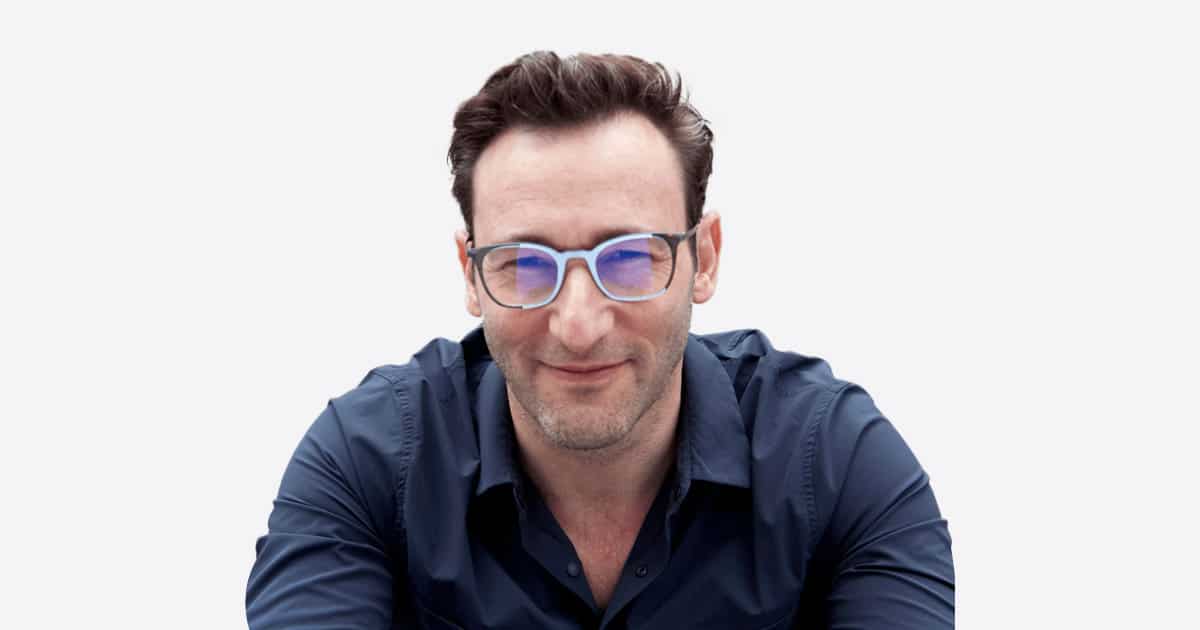Simon Sinek Has Tips for Businesses that Want to Keep Their Employees

Q: Since the pandemic, many people have been wrestling with their personal why, their purpose. What do you see going on? And how should businesses respond?
I think only half the story is being written about the Great Resignation. The pessimistic view is that people don’t need to work now, but they’ll be back. The optimistic view is that we all had great reckoning and got to look at lives and careers, and many people decided they don’t like where they are working or for whom. Or they want to follow dreams.
The thing missing from the conversation is that a poor corporate culture has existed for so many years in so many companies. So now, many people look at their workplace and feel they don’t belong and don’t want to be there anymore.
To the companies that say, “They’ll be back,” I’d say: “They don’t want to come back to you.” As much as employees are looking at themselves, companies need to look at their environment and say, is this a place people want to work? It’s a great opportunity for companies to up their game.
I would argue fewer people would be resigning if they felt appreciated, seen, and heard.
Q: You have spoken before about leadership skills for navigating a crisis. But what is important to keep in mind when there is a crisis as prolonged as the ones we are living through now? What can help us tap into long-term resilience?
Adrenalin is great at the beginning. But that runs out. No one escapes the trauma of a crisis. No one.
The only way to get through something so protracted is together. No single person is smart enough or strong enough to get through it alone. So, the #1 thing we need to do is focus on relationships. The lonelier you feel and the more isolated you feel, the more important it is.
And maybe indulge in gallows humor. You can’t be depressed and laugh at the same time.
Q: Experts have suggested that we might see a more significant mental health crisis after the health crisis is over. Are businesses prepared for that? What do they need to do?
The good news is that mental health is on the radar. Companies experimenting with days off or weeks off for no other reason than to give people a break are getting ink. And when big companies experiment, others follow.
But I don’t think enough is being talked about over the long term—where the crisis at the secondary and tertiary levels has yet to happen. We haven’t had doctors and nurses quitting in droves yet. But we will because they are beat. We will see a rise in alcoholism. In terms of mental health, when the immediate challenge goes away, some people are fine, and others feel even more isolated.
My recommendation is that we use the analogy of a hospital. Hospitals in America have zero mental health support for doctors and nurses. But the military has mental health units that deploy with doctors and nurses for the sole purpose of support.
Hospitals need to start asking themselves if they should have mental health units. Companies should do the same. There need to be psychologists and psychiatrists on staff. I think there needs to be a chief mental health officer.
Q: For many people, growth and wellbeing are key to staying inspired. With so many other things going on now, what tips do you have for how leaders can provide their teams with personal and professional growth opportunities?
It’s about the difference between fasting and being healthy. You can lose weight in a couple of weeks if you want. Just drink water and celebrate. But those pounds will come back.
Being healthy – sleeping and eating well – requires discipline. And it’s easier when you have someone to do it with and knowledge. Companies need to ask: Do we need to work so hard? Or should we have a rule that you cannot check email after hours? Companies need to draw some boundaries.
Q: You’re known as an optimist because you focus on the light at the end of the tunnel—not the tunnel. What do you see at the end of the tunnel we’re now in?
The light hasn’t changed. I still imagine a bright future and our ability to build it together. We have new challenges. We’ve been thrown a curveball. It happens. No plan goes according to plan.
But we’ve had lessons of togetherness and empathy. We’ve seen a lot of empathy. And people who may have been poor leaders before are calling now and asking how to be better leaders. People are learning to have difficult conversations. Every benefit comes with a cost, and every cost comes with a benefit.
Simon Sinek’s latest book is The Infinite Game. Order it free of shipping through Book People, the Conference for Women’s online bookseller.